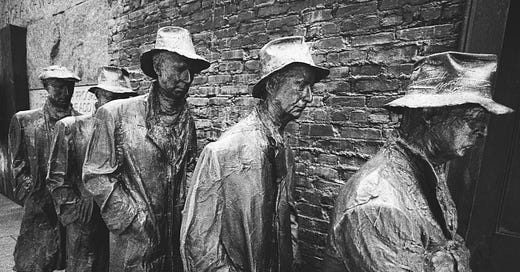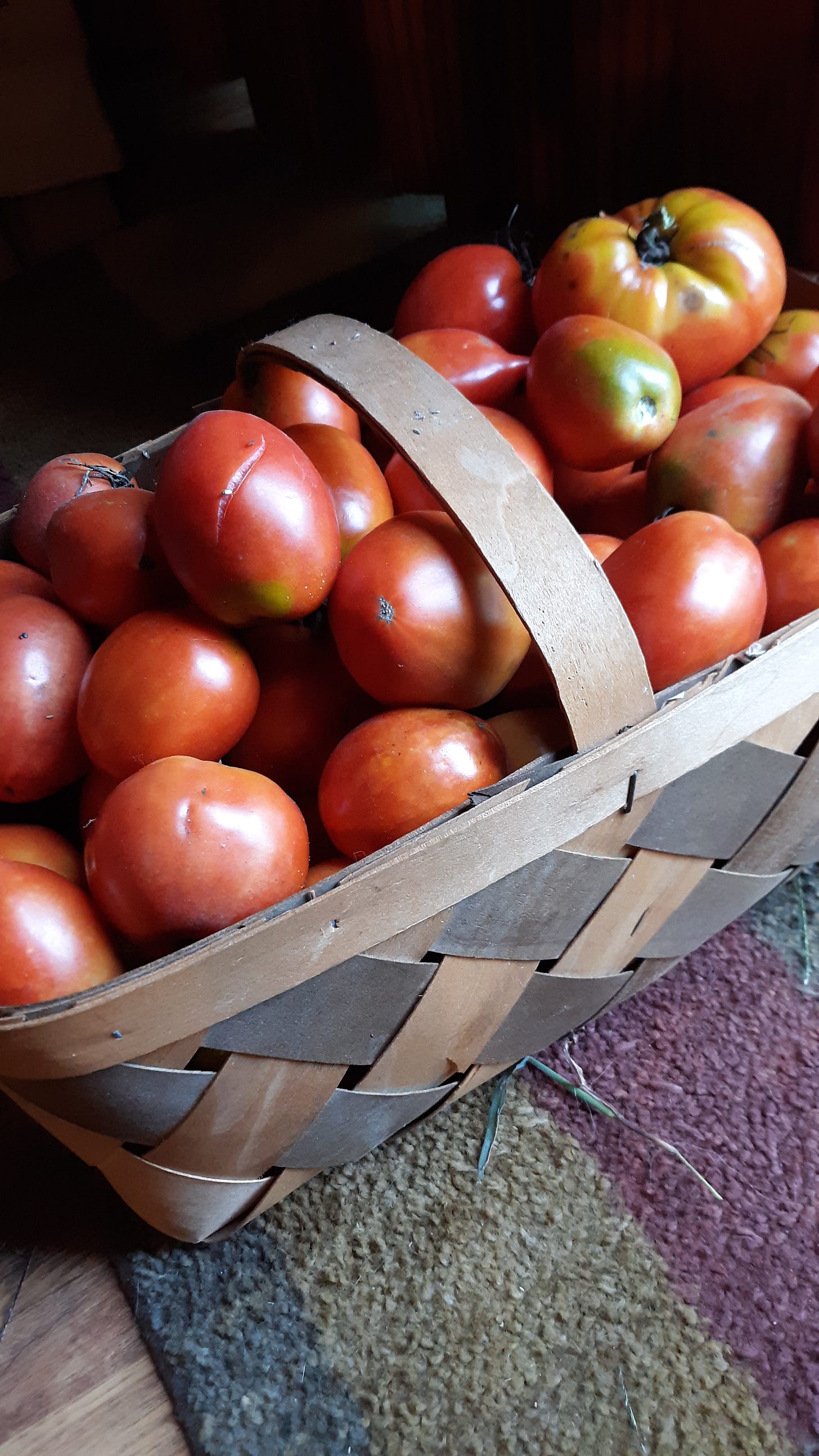What happened and are we bound to repeat it? What have we learned from this part of history? How can we be prepared? Is it too late? Questions that have crossed my mind of late. I’ve been canning the tomatoes from the garden, like I’ve done for years. It’s just part of life to preserve enough to fill the pantry for the winter. Just like my grandmother and great grandmother always did. The reason grandmother survived was because she knew how to do stuff like this, grow food and preserve it, make something out of nothing…this was frugality stretched to it’s limits.
What happened in 1929 and after?
My parents were born in 1930 and although they lived through it, they were children and understood things from a child’s point of view. They did without a lot of things but no one felt deprived becaused everyone was in the same boat, losing jobs and not having enough money to feed the family. The struggle was real but people helped each other the best they could. Some could see it coming and others had no idea.
What can we learn history? Are we bound to make the same mistakes? I hope mankind has learned.
Stories from the Great Depression
This great nation will endure as it has endured, will revive and will prosper…the only thing we have to fear, is fear itself.
Franklin D. Roosevelt
My Family Stories
My mother put together the family history on both sides of the family, hers and my father’s families. She did separate books and shared her research and family stories that she collected. One story relates how people would use feed sacks and fertilizer sacks for making clothing. I can only imagine how wearing a fertilizer sack against your skin, especially in the younger years could have on future generations, now I’ve learned about epigenetics. What your grandmother did not only matters to your parent, but it matters to you and your children too. My mother told me her family never wore clothes made from these feed sacks, but instead shared stories of a murder in the family. Two men were hung the next day. Justice was served a lot quicker back then.
My father’s family had a cotton gin in south Georgia and kept the family going. Other family members worked together on the farm to provide the food they had on the table, everyone had a part to play in surviving those lean years. Other family members were in the turpentine and pine lumbering business, and even others in the pecans and candy business. In those lean years, Stuckey had a lot of problems securing enough sugar during the days of rationing to keep his candy business afloat. Times were tough, but my Scottish ancestors were tougher…they were “The Orphans” from Eastman, Georgia.
Let’s hope we have learned a lesson from those that came before us.
Todays featured photo by Sonder Quest on Unsplash





